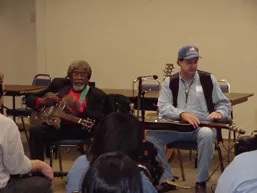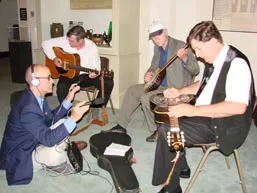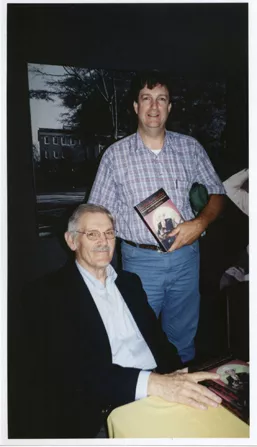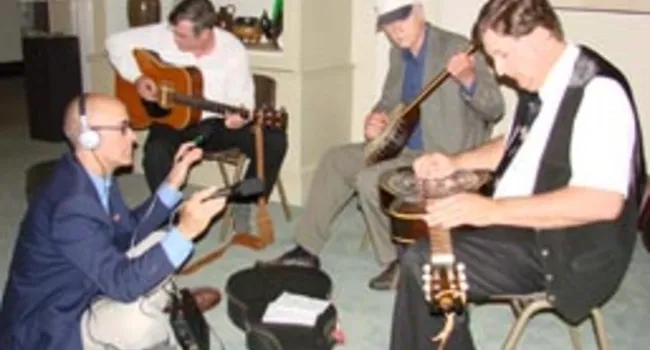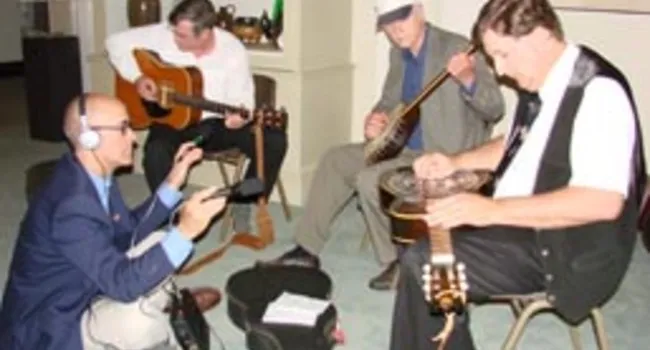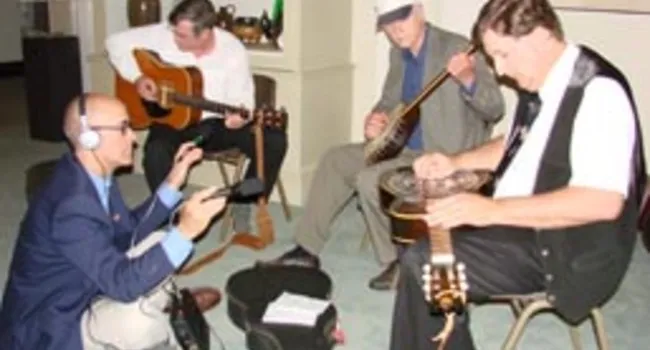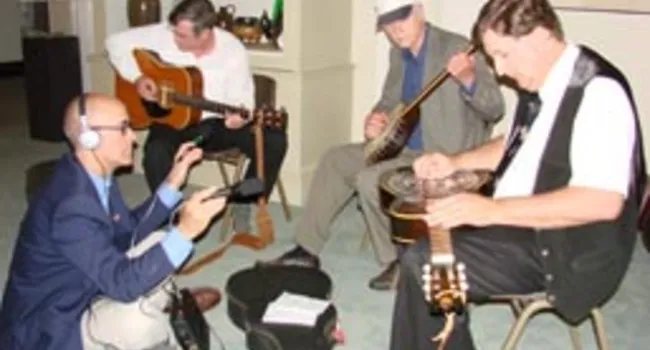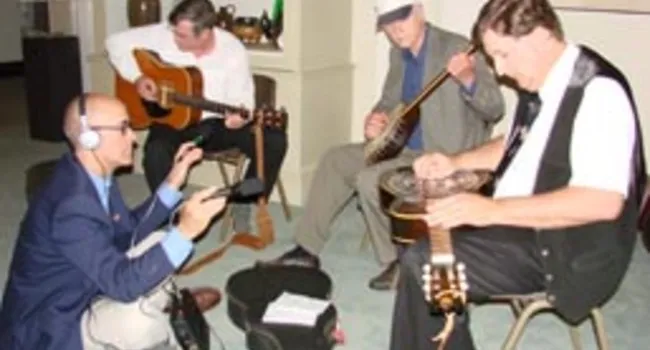The South Carolina Piedmont has often been referred to as “The textile center of the world.” Alda Smith’s musical heritage is woven from the influences that migrated throughout the Piedmont during late 19th century. Recognizing the decline of the once dominant scene created by textile mills across the upstate, Smith strives to preserve and present the history of the music created and nurtured in the mill town environment.
Alda, the youngest son of Ralph Smith (d. July 28, 1999), traces his regional musical heritage back to the mid-1800s. Born and raised in Greenville County, Smith has deep roots in Piedmont culture and fosters a keen understanding of the blending of musical genres that forms traditional country music. He truly grew up “on the laps” of a host of family musicians.
One day in 1965, the eleven year-old Smith sat down with his grandfather, Shelah Lafayette Laws. Born in 1878, Laws probably learned many of his songs during the last decades of the 19th century. Powerful examples of the strong English ballad tradition deeply rooted in the southern Appalachians, these songs formed the foundation of modern country music. Transplanted by immigrants from the British Isles, songs like “Sally Pretty Sally” and “Drunkard’s Lone Child” were widely popular and well-documented songs in the Appalachians and Ozarks. “Charming Beauty Bright” contains the line “seven long months I served the King,” a clear reference to its English origins.
Songs like “Gee Wah Song” exemplify the complex and dynamic interaction of European and Native American expressive traditions. This evidence of shared traditions is a reminder that folks settling in the Appalachians did not live in a cultural vacuum. English, Scottish, and Eastern European roots remained strong, but were influenced by a new cultural landscape. This would be the first of several recording sessions that would continue over the next few years. Smith continued his documentary journey, recording interviews and musical performances of several family members and friends.
Smith first began playing a modified acoustic guitar known as a Dobro as a youngster would later play pedal steel guitar with many groups and combos in the Piedmont. His performances included everything from hillbilly to rock and pop to gospel. In his early thirties he joined the Nashville Songwriters Association, and soon began playing acoustic guitar, bass guitar, composing and singing. His musical interests and repertoire are varied but are laden with the upstate traditional music that was popular in early 1900s.
A fourth-generation musician, Smith has worked tirelessly to promote traditional Piedmont music, especially the old-time country associated with the lap steel and Dobro instruments. Whether visiting schools, performing at festivals, or presenting at conferences, Alda Smith displays the energy and dedication it requires when working from the grassroots level.
The Dobro and Lap Steel Convention is one manifestation of this dedication. The convention’s importance is two-fold. While it provides a venue for musicians, young and old, novice and expert, to learn from each other, the program also presents an opportunity to educate the public about the deeply-rooted relationship music has with the Piedmont community and South Carolina as a whole. In 2003, Smith received The Order of the Palmetto. The highest civilian honor awarded by the Governor of South Carolina, it is a testament to the dedication and contributions Smith has made in the traditional music community and the state as whole. Smith received the Jean Laney Harris Folk Heritage Award in 2007.

